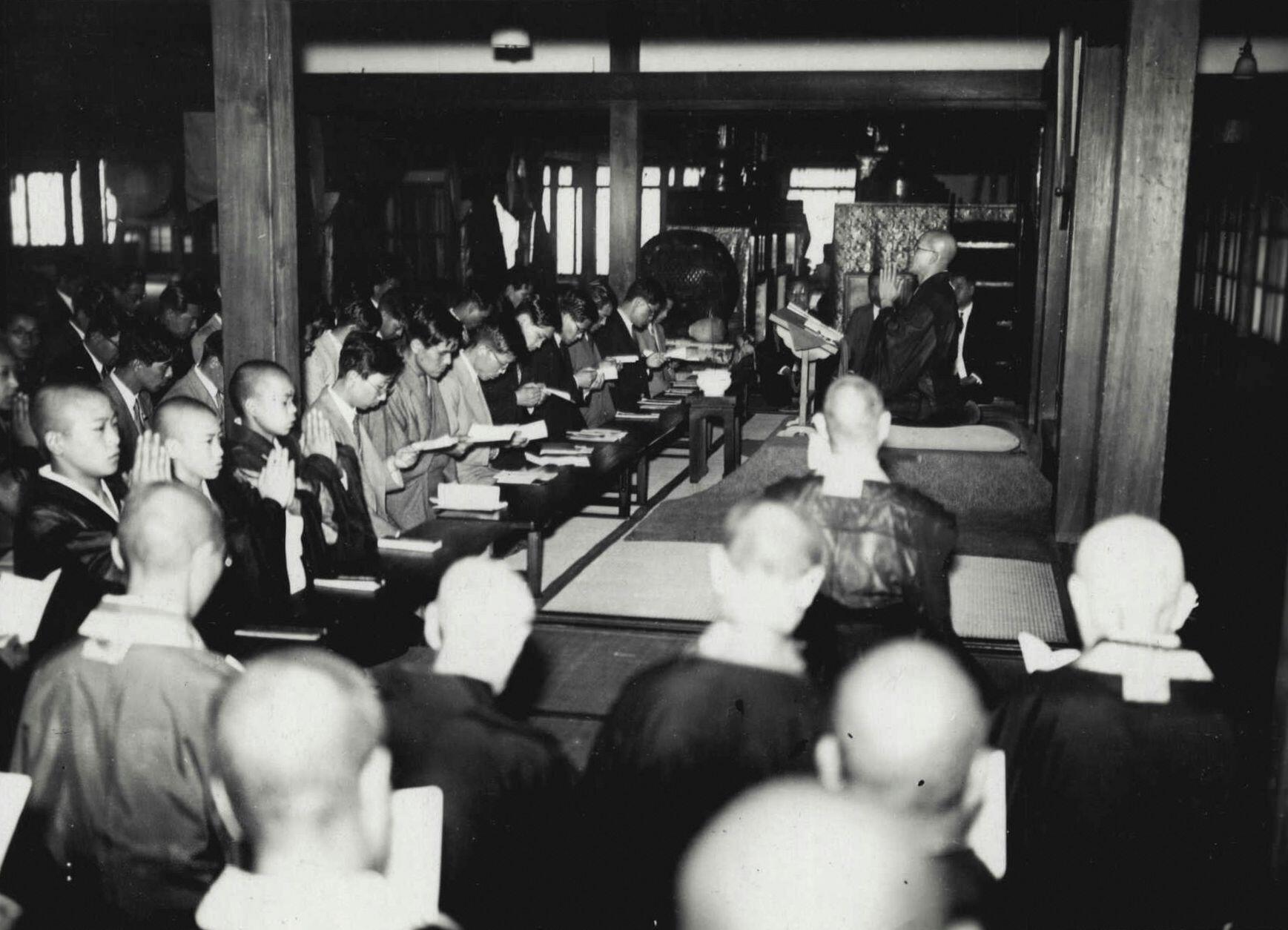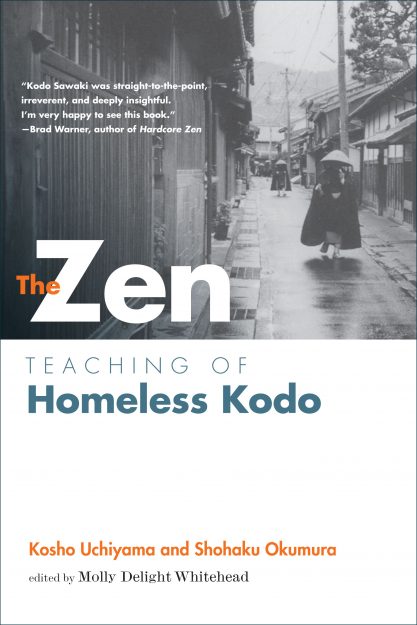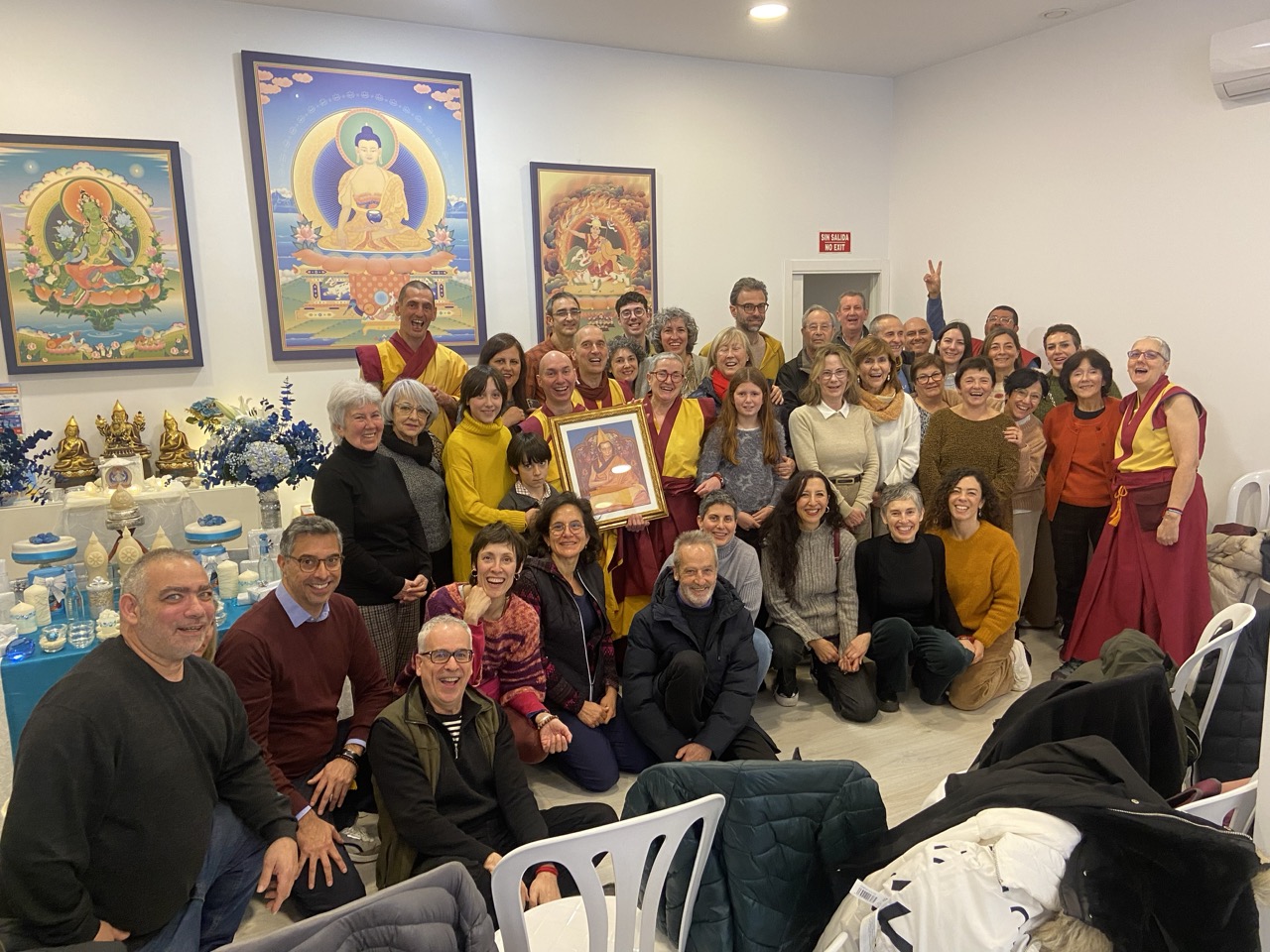Education and Work
Three Zen priests on how we surrender our identities when indoctrinated in education systems and corporate bureaucracy The post Education and Work first appeared on Tricycle: The Buddhist Review. The post Education and Work appeared first on Tricycle: The...

Born June 16, 1880, Kodo Sawaki Roshi is widely considered to be one of the most important and influential Zen Buddhist masters of the 20th century, credited for making Soto Zen teachings available to the common people outside of traditional monastic systems. The following excerpt, from the collection The Zen Teaching of Homeless Kodo, combines Sawaki Roshi’s teachings with commentary from two of his disciplines—his direct dharma heir Kosho Uchiyama Roshi as well as Kosho Uchiyama Roshi’s dharma successor, Shohaku Okumura.
Kodo Sawaki (KS): Today’s educational system is wrong and causes trouble. Schools examine and grade students, classifying human beings and assigning them numbers. There’s nothing more ridiculous. Who on earth is superior? Who’s inferior? Is it superior to have a good memory and inferior to have a poor one? Aren’t there many foolish people with good memories?
Moreover, if a person is given low grades, they might be caught in an inferiority complex for their entire life and think, “I’m no good.” But actually it’s this system of classification, and our internalization of it, that is no good.
Kosho Uchiyama (KU): The most popular hostess at a nightclub might think proudly, “I’m number one.” However, she sometimes feels loneliness and emptiness within this favorable condition because she finds that she’s simply the most expensive commodity for sale in the store’s showcase. No matter how expensively she’s sold, the moment she discovers deep in her mind that she’s just a commodity, she’ll naturally feel empty.
Are schools merely factories to produce commodities called human beings? It seems the only purpose of an education is to make its products more valuable commercially. Elementary school is simply preparation for the exam to enter a good middle school. Middle school is merely to pass the exam for a better high school. High school is just preparation for a prestigious university. Attending university is simply to get a desirable job at a big company. Students
are placed on a conveyor belt as goods to be sold. I suppose some student violence is resistance against a society in which human beings are treated like commodities. Violence and feelings of inferiority are two symptoms of our competitive society.
KS: Studying originally meant aspiring to discover the meaning of life. These days studying has become all about getting a job.
Shohaku Okumura (SO): This is another example of what attracted me as a high school student to Sawaki Roshi and Uchiyama Roshi. When I became interested in Zen and Buddhism, the most famous writer about Zen was D. T. Suzuki (1870–1966). I tried to read one of his books but gave up after a few pages. To a high school student, he was as difficult as Dogen. However, Sawaki Roshi’s and Uchiyama Roshi’s teachings spoke directly to the problems I was facing as a teenager in the 1960s.
People should exist not as interchangeable parts of an economic machine but as human beings who live and die, impermanent and irreplaceable, each with our own beauty.
Uchiyama Roshi wrote three books about education. One is titled Jinseika-dokuhon, or Textbook on Studying Human Life. He wished to teach the truth of human life to high school students. He
contended that in the modern age, competition for survival is the basic principle of society, and education is based on this principle. But he insisted that students should be taught how to live based on their life force. People should exist not as interchangeable parts of an economic machine but as human beings who live and die, impermanent and irreplaceable, each with our own beauty. He often said a real flower is beautiful because of its impermanence, which a plastic flower lacks.
Another of his books was a collection of essays for teachers. He encouraged them to teach students that we live together not only with other people but also with all living beings, and we should respect and value the life we share.
KS: When people are alone, they’re not so bad. However, when a group forms, paralysis occurs; people become totally foolish and cannot distinguish good from bad. Their minds are numbed by the group. Because of their desire to belong and even to lose themselves, some pay membership fees. Others work on advertising to attract people and intoxicate them for some political, spiritual, or commercial purpose.
I keep some distance from society, not to escape it but to avoid this kind of paralysis. To practice zazen is to become free of this group stupidity.
KU: In Buddhism, the obstacle that causes suffering in our lives is called “delusive desire”: in Sanskrit, klesha, and in Japanese, bonno. Which desire is considered the worst hindrance has differed depending on time and place. In ancient India, people thought the most troublesome obstacle for practitioners was sexual desire. They made strong efforts to control such desires. Later, in Shobogenzo Gyoji, Dogen Zenji said, “The desire for fame is worse than violating the precepts.” He considered pursuing fame and profit the greatest hindrance to practice, probably because in his time, monks in Nara and on Mount Koya and Mount Hiei competed with each other for wealth and renown.
Sexual greed and desire for fame and profit are all obstacles that should be renounced by practitioners of the buddha way. When Sawaki Roshi coined the expression “group stupidity,” he was speaking of hindrances not only for Buddhist practitioners but for everyone in this modern age.
Because of this, Buddhist teaching resonates beyond the circle of the Buddhist community and gains relevance for our contemporary society. Today, people live relying on groups and organizations, drifting along in them like floating weeds without roots. Buddhism can help people awaken from the haze of group stupidity and open the clear eyes of the self.
SO: Sawaki Roshi coined many unique expressions. Among them, Uchiyama Roshi values “group stupidity” as a phrase that identifies the fundamental obstacle to people in our modern society. This is a difficult expression to translate into English. The original Japanese is grupuboke. Bokeru means our minds stop functioning in a normal, wholesome way because of internal or external conditions such as intoxication, disorder, illness, aging, etc. Sawaki Roshi observes that when people identify with a group or organization, their minds stop working in a healthy way.
People live relying on groups and organizations, drifting along in them like floating weeds without roots.
I’m not sure whether Sawaki Roshi invented the expression “group stupidity” specifically for modern people. This is not only a modern phenomenon. A group-oriented mentality has existed in Japanese culture since ancient times. I think it was Uchiyama Roshi’s insight that interpreted Sawaki Roshi’s admonitions on “group stupidity” as a warning for modern times.
In my high school library, I found The Organization Man by William H. Whyte. I didn’t understand it very well at the time, but the title and at least one point I gathered impressed me; I remember thinking I didn’t want to be an organization man. Recently, I recalled the book. I researched it online and found a description that said, “An organization man is an employee, especially of a large corporation, who has adapted so completely to what is expected in attitudes, ideas, behavior, etc., by the corporation as to have lost a sense of personal identity or independence.”
It seems Uchiyama Roshi had the same insight as William Whyte about how people working for organizations lose their identity. And this is the majority of modern people—in the 21st century, it seems the entire human world is becoming one huge corporation.
KS: You should be embarrassed if you’re unable to live without money.
KU: About ten years ago, the branch manager of one of the top banks in the center of a big city came to visit, and he revealed his agony. He said, “My retirement is getting closer, and I’m so worried about my livelihood in the years after retirement that I can’t sleep at night.” In spite of myself, I replied:
You ask too much! You get a big paycheck every month and also a regular bonus. You must have savings. Look at my situation. Since I’ve never had a regular income, needless to say, I have no savings. Every day I go begging like a stray dog. I’ve been living my life telling myself, “It will be all right if I can just make it through today.” No matter how many years I continue this way of life, I will not get any bonus, retirement allowance, or pension. Your anxiety about your old age cannot be compared with mine.
Your idea is to first estimate how many more years you will live, then multiply that by your salary and bonuses. You’ll be able to have peace of mind only if you have the necessary amount of cash in front of you. But it’s impossible to feel safe that way, so you can’t avoid anxiety.
We may think that people who hold themselves dear, thinking only of their own profit, saying “Me, Me, Me,” will take care of themselves perfectly and live happy lives. But that’s not the case. On the contrary, such people are always anxious and continuously complain that things don’t go as they desire. This is a strange thing. The more they’re concerned with their profit, the more they feel that things in this world never go as they wish. This fact becomes larger and larger, and they feel oppressed by things against their will. They have more and more anxieties.
On the other hand, if we can give up our self-centered concerns and see that this world doesn’t exist only to satisfy our desires, then just as in begging, we cannot help but appreciate the things we receive as blessings.
After talking with him, I thought, “In this world, some people have such luxurious anxieties.”
SO: In Pensées, Blaise Pascal wrote:
Man is but a reed, the most feeble thing in nature; but he is a thinking reed. The entire universe need not arm itself to crush him. A vapour, a drop of water suffices to kill him. But, if the universe were to crush him, man would still be more noble than that which killed him, because he knows that he dies and the advantage which the universe has over him; the universe knows nothing of this.
All our dignity consists, then, in thought. By it we must elevate ourselves, and not by space and time which we cannot fill. Let us endeavour, then, to think well; this is the principle of morality.
In Japan, Descartes and Pascal are the best-known European philosophers. Descartes’s “I think, therefore I am” and Pascal’s “Man is a thinking reed” are particularly famous; they appear in high school textbooks. For these men, rational, philosophical thinking is the source of human dignity and the basis of our souls’ superiority to matter. Thinking well is the foundation of morality and the way to conquer our passions. God is the source of reason as well as the truth found through reason.
Beginning in the mid-19th century, reason began to negate the existence of God. At the same time, rational thought became a tool to discover principles in nature that we could appropriate to make our lives more comfortable. Economies have developed around satisfying our desires using science and technology. As Sawaki Roshi said, schools cease being places to study truth and become factories to produce useful parts of the economic machine. Mahayana Buddhism doesn’t assume we’re superior to the universe or things within it just because we have the ability to think. We ourselves are collections of the five aggregates. We can live only within the network of interconnectedness of all beings. We rely on gifts from the universe to live (air, water, food). We live together with all things. Why is it necessary to think we’re superior? This is like our stomach thinking it’s more valuable than other parts of our bodies.
The bank manager Uchiyama Roshi criticized is like all of us. His I, a fabrication of thought, is trying to put everything under its control, safe and convenient for himself as long as he lives. Because things cannot always work in accord with his desires, he experiences constant fear and frustration. This suffering arises from our narrow concept of I, combined with our insatiable greed.
♦
© 2014 by Shohaku Okumura and Kosho Uchiyama, The Zen Teaching of Homeless Kodo. Reprinted by arrangement with Wisdom Publications.

 MikeTyes
MikeTyes 



























.jpg&h=630&w=1200&q=100&v=5491d66279&c=1)




